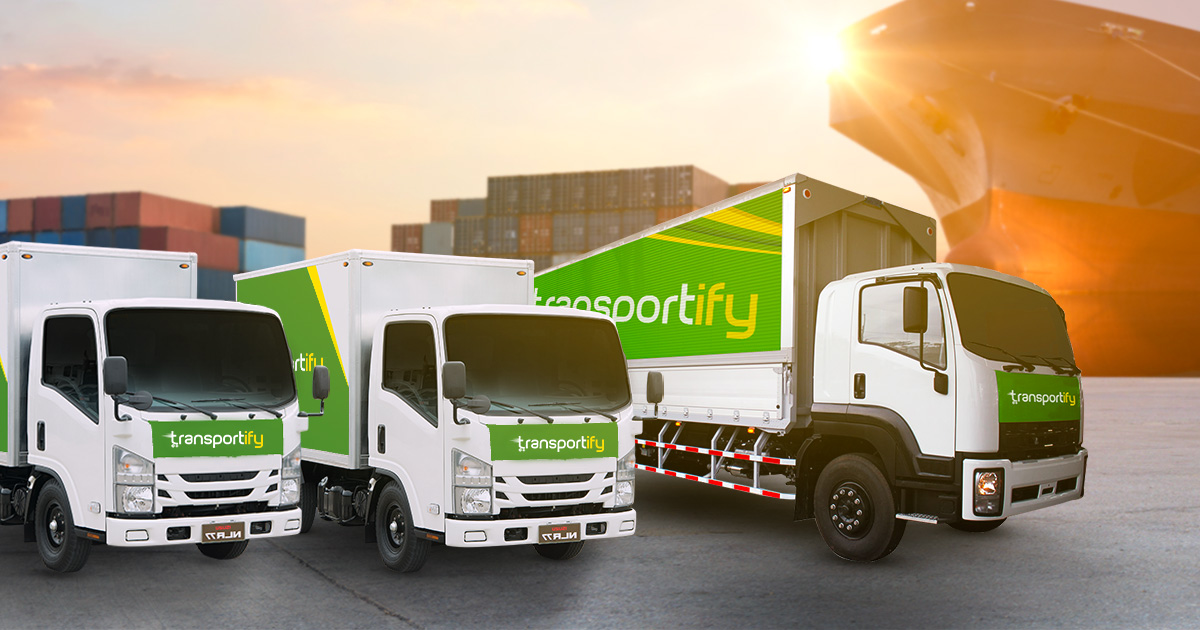
Just like most other industries, logistics is chock-full of terms that can make it exceptionally difficult for the uninitiated to understand what on earth is going on. Thus, if you want a comprehensive understanding of logistics and wish to be able to read and engage with various articles online, then you’re going to need to understand what each of these terms mean.
Glossary for Terms used in the Logistics Industry
In this article, we are going to share a thorough glossary of logistics industry terms with their full definitions, for your convenience.
3PL – Third Party Logistics Company
3PL refers to a logistics company operating on your behalf. So, a logistics company that offers delivery services or the option to outsource the entirety of your product movement would be referred to as a 3PL.
To know more about 3PL or Third Party Logistics, you may read our blog about the definition of a Third Party Logistics or 3PL.
ABC Analysis
ABC Analysis is a type of classification of items in an inventory, in terms of importance which is defined by a certain criterion (i.e., sales volume or purchase volume).
Automated Broker Interface (ABI)
ABI refers to the US. Customs program that automates the flow of customs related information, among various importers, carriers, and custom brokers.
Activity Based Management (ABM)
ABM refers to the focus on the management of activities within a business’ processes and the route to continually improve the value received by the customers, and the total of the profit earned providing said value. ABM relies on activity-based cost data info and performance data in order to influence the actions that management takes.
Activity Based Planning (ABP)
ABP is a process that is ongoing, used to determine resource and activity requirements (both from an operational and financial standpoint), based on demand of products and services dictated by the customers needs. Resource requirements are then compared with available resources and any capacity issues that can be identified and managed appropriately.
Actual to Theoretical Time Cycle
Actual to theoretical time cycle is the ratio of a measured time required to produce a certain output, divided by the total amount of time required to produce said output, based on the rated efficiency of labour operations and the relevant machinery required.
Acceptance Sampling
Acceptance sampling falls under two categories:
- The process of sampling a portion of goods for inspection, as opposed to examining the entire load. The entire load may be accepted or rejected based on the acceptance sample even if the lot is better or worse than the sample inspected. There are two attributes that determine acceptance samples A) the presence or absence of certain expected characteristics, and B) the numerical magnitude of characteristics is recorded for each inspected acceptance sample.
- A method of measuring random samples of bathes or products against predetermined standards of quality.
Aggregate Forecast
Aggregate Forecast refers to an estimate of sales, often phased for a grouping of products, or product categories. Stated in units or dollars, or often both, the aggregate forecast is then used for sales and production planning.
Advanced Planning and Scheduling
Advanced planning and scheduling (or APS), refers to the techniques that deal with the planning and analysis of logistics and manufacturing over short, intermediate, and long-term periods of time. APS can describe any software that leverages advanced algorithms in order to perform optimisation or simulations on capacity scheduling, product sourcing, resource and capital planning, budget forecasting, demand management, and much more.
Advanced Shipping Notice
An advanced shipping notice (ASN), is a transaction set where a supplier sends out a notification to all relevant parties, that a new shipment is now outbound within the supply chain. This can include expected time of arrival and will be transmitted to the customer or consignor as well.
Advanced Planning and Scheduling
Advanced planning and scheduling (or APS), refers to the techniques that deal with the planning and analysis of logistics and manufacturing over short, intermediate, and long-term periods of time. APS can describe any software that leverages advanced algorithms in order to perform optimisation or simulations on capacity scheduling, product sourcing, resource and capital planning, budget forecasting, demand management, and much more.
Air Waybill
An AWB is a document that is issued by a freight forwarder or airline, when goods are shipped by air.
Bill of Lading
The bill of lading (or BOL) is a detailed document which displays the method and destination of a shipment including all other basic and relevant information. A BOL can also act as a receipt, proof of ownership, or the authority to pick up and deliver said shipment.
Business Process Outsourcing (BPO)
BPO is a method of outsourcing non-core internal functions to third-party companies (e.g., third party logistics). This can also include accounts payable, payroll, HR, IT development, and complete management of the enterprise.
BPO companies also do outsourcing to some of their functions like logistics. Read on our blog about how BPO companies continuously expand their service by partnering with a reliable on-demand delivery service.
Buffer
Buffer falls into two categories:
- A quantity of materials that are awaiting further processing (i.e., raw materials)
- Buffers can refer to time of material support and can be maintained at the constraint, convergent points, divergent points, and various shipping points.
Buffer Management
Buffer management refers to the theory of constraints, which is a process in which all expediting in a shop is driven by what is scheduled in said buffers. Expediting material into the buffers helps to avoid idleness and missed customer due dates.
Buffer Stock
Buffer stock refers to the number of goods or items kept in storage in order to safeguard against any unforeseen demands or shortages. A backup stock if you like.
Break-Even Point
The break-even point refers to the level of volume of sales or production at which operations will be neither profitable, nor unprofitable. It is the intersection between revenue and total cost curves and must be handled carefully.
Boxcar
A boxcar is an enclosed railcar that is used to transport freight via train on land.
Blanket Purchase Order
A blanket purchase order refers to a long-term commitment to a supplier for materials, against short-term releases that will be generated to satisfy certain requirements. Most of the time, a blanket order will only cover one specific item and a predetermined delivery date.
Bilateral Contract
A bilateral contract is a type of agreement where each party makes a promise to the other party. This could be in the form of upholding certain values and meeting specific criteria.
Batch Picking
Batch picking refers to the method of picking orders in which requirements are aggregated by product across a number of orders in order to reduce the movement to and from the original product locations. Aggregated quantities of each product will then be brought to a common area where the various individual orders can be assembled. This is common with gift baskets as an example, where a multitude of products are sourced from various locations.
Balanced Scorecard
A balanced scorecard is a well-structured measurement system that is based on a variety of financial and non-financial measures of a businesses performance. A list of financial and operational measures is then used to evaluate the supply chains performance. This could include customer perspective, financial perspective, innovation and learning, and business processes. It connects all of the objectives and strategies allowing each dimension to have its own goals under one shared vision.
Cargo
Cargo refers to goods carried on a ship, an aircraft, or a motor vehicle. If you are transporting your products from your manufacturing warehouses, to the customer, your products become the “cargo” while in transit.
A cargo freight provider logistics company usually partners with large companies to transport large amounts of cargo from one location to another.
Cash Against Documents
CAD is a method of payment used for goods, in which documents transferring the title of ownership and only given upon payment of cash to an intermediary, acting on behalf of the seller. Typically used in private sales or the importing of vehicles.
Carrier Certificate and Release Order
This is used to advise the relevant customs agents of the shipment’s details. The document certifies that a firm or individual named on said certificate is indeed the owner or consignee of the cargo in question.
Container Freight Station
The CFS, or container freight station is a warehousing area designated for the consolidation and division of freight containers throughout the supply chain. These are typically located near shipping ports so that they can be handled prior to shipping, thus speeding the process up and leaving less room for error.
Cost, Insurance, Freight (CIF)
CIF means that a seller will be providing not only the goods, but insurance and the cost of delivery as well. These additional costs are typically covered by the buyer, but some sellers will offer to cover all costs (depending on the product in question and the country of origin). Tread carefully, as CIF implies no additional costs, though isn’t always the case.
Centre-of-Gravity Approach
The centre-of-gravity approach is a type of supply chain planning methodology which is used to locate distribution centres that are at the approximate “centre” of a supply chain, representing minimum transportation costs between various factories, distribution centres, and markets.
Countervailing Duties
Countervailing duties (or CVD) as taxes which are placed in various imported products in accordance with World Trade Organization rules, in order to reduce the impact of foreign government subsidies.
Contract Logistics
Contract logistics refers to the process of a company outsourcing their resource management tasks (warehousing and delivery), to a third-party enterprise. At Transportify, our bread and butter is contract logistics. With our extensive network, capable infrastructure, and vast resources, we offer businesses both small and large end-to-end solutions for all of their logistical requirements.
Check out our logistics business program page if you’d like to find out more about how we can assist you with everything from inbound transportation and warehousing, through to freight transportation and last-mile delivery.
Delivery
Delivery is the process of transporting goods from one source location, to a predetermined destination. This general process is referred to as distribution, while the wider study of efficient processes for the delivery and disposition of goods is known as logistics. It’s the ‘what’, not the ‘how’ or the ‘why’.
Distribution Warehouse
A distribution warehouse is the finished goods warehouse from which a business can assemble the customer orders for delivery.
Drayage
Drayage is a service offered by a logistics company, for pick-up and delivery of rail or ocean containers. Drayage agents tend to handle full-load containers.
Distribution Requirements Planning (DRP)
DPR is a system of determining demands for inventory and distribution centres, and for consolidating demand data in reverse, as input to the materials and products system.
Distribution Resource Planning (DPR II)
DPR II refers to the extension of distribution requirements planning, into the planning of certain vital resources contained within a distribution system (i.e., warehouse space, money, trucks, freight cars, workforce, and so on).
Equipment
Equipment can refer to any and all machinery and devices that are crucial in the logistics process. For example: any heavy machinery in the manufacturing facility, forklifts and elevated platforms in warehousing, and so on. Whatever it takes to get the job done.
Early Supplier Involvement (ESI)
ESI is a process that involves suppliers early on in the product design activity, drawing on their insights, knowledge, and expertise, in order to draw up better designs in less time, and ones that will be easier to manufacture, to a higher standard of quality.
Embargo
Embargo is a term that refers to the prohibition (banning of/illegalization) of exports and imports, either with specific products, or relating to specific countries.
Express Delivery Service
Express delivery is the fastest form of shipping available. The customer will pay an extra shipping cost for this type of delivery because the package will be transported to them anywhere between 24 and 72 hours (depending on their location in the world in relation to the origin point). Express delivery service providers ensure that customers will get their packages quickly without worrying about costs in delivery.
Empirical
Empirical term used to describe a formula or statement, based on observation and experience, as opposed to theory or deduction. It is quantitative and circumstantial.
Enterprise Application Integration (EAI)
EAI is a term used in IT, relating to the techniques and tools used for linking other enterprise systems together. Linking systems is an essentiality in today’s modern world, as automating business operations through computerised methods is the fastest and most efficient way for two businesses to communicate (and subsequently operate as one).
Freight Logistics
Freight logistics refers to the movement of cargo via air, land, and sea. Freight: goods transported in bulk by truck, train, ship, or aircraft. The logistics aspect is absolutely everything in between: how are said products being moved from A to B, etc.
For reduced delays for customers, effective freight logistics management and other trucking services is essential.
Freight Forwarding
Freight forwarding is the job role of a person or company that organises shipments for individuals or other companies in order to get goods from the point of manufacture, to the market, customer, or final point of distribution. They are the “go-between” for those who wish to outsource their logistics needs to a 3PL.
Freight forwarding logistics companies must be able to satisfy the needs of their customers at the same time provide high quality services which will translate to a good experience.
Full Container Load / Truckload
Full Truckload (FTL) or Full Container Load (FCL) refer to a shipping container of any size, assigned to one single party. So, as partial load refers to multiple parties shipping goods in a single container, FTL or FCL refers to a single party filling a shipping container by themselves, with their own goods.
Furniture Delivery Services
As the name suggests, furniture delivery and relocation services refer to logistics companies that either specialise in or offer furniture delivery services; often falling under the blanket of relocation services.
Free-Trade Zone / Foreign Trade Zone
FTZ’s refer to geographical areas in which goods are able to be stored, handled, manufactured, reconfigured, and delivered, without being subject to any customers duty.
General Rate Increase
General rate increase (or GRI) refers to the amount in which an ocean carrier increases their rates due to increased demand and rising competition.
Heavy Freight Shipping
Heavy freight shipping refers to cargo that is larger than 150lbs and is greater than the dimensions of a standard delivery vehicle, such as a van. Anything larger than that will require a truckload to transport and thus is coined heavy freight shipping. Companies can easily hire a 10 wheeler wing vans for heavy freight shipping using modern logistics applications like Transportify.
Importer Security Filing
ISF or importer security filing is an electronic document that is to be filed by freight forwarders before a vessel or aircraft departs. This is a list which includes all information about the shipment, and failure to file this document can lead to significant financial penalties, such as a $5000 fine.
You may also hear an ISF referred to as being a 10+2 as there are 10 pieces of information required from the supplier, and 2 pieces of information required by the carrier.
Last Mile Delivery
Last mile delivery, as the name suggests, is the final stage of a product’s journey. So, let’s say that a customer in the US orders a product from China. The transportation of the goods will be arranged from the warehouse in China, overseas, all the way to the customer’s house. The last mile is when the goods are taken off a 10-wheeler truck or train at the relevant depot, and finally delivered in a small vehicle such as a delivery van or motorcycle (and eventually by foot from the bottom of the driveway to the door).
Less than Truckload
Less Than Truckload is a common logistics acronym which refers to shipments that are small enough to couple with others in order to fill a truck. This is the best method of delivery for those who can’t fill a truck by themselves and thus are unable to justify the additional cost of moving their goods on their own. LTL allows smaller businesses to “carpool” as it were.
Logistics
Logistics is quite simply put: the detailed coordination of a complex operation involving many people, facilities, or supplies. This refers to every single aspect of an organisation’s movements, specifically referring to their products and how they reach their customer base. To know more about logistics, you may refer to our blog talking about transport logistics and delivery services.
Local Delivery Service
A local delivery service is quite simply a logistics supply chain system that operates on a smaller scale. For example, a local delivery service might focus on transporting baked goods, or floral arrangements to local restaurants and establishments within a close proximity in order to preserve the goods in question.
L300 Delivery Van
An L300 delivery van makes up the bulk of the Transportify fleet and is a versatile and reliable delivery vehicle. (The L300 Exceed is powered by a Euro 4 compliant 2200cc 2.2L 4 In-line 16 Valve DOHC (4N14) with a Turbocharged – Intercooler System that can fire up to 98 horsepower at 3500 rpm and 200 Nm torque at 3500 revs per minute. Its mill is mated with a 5-speed manual transmission).
You may visit our blog to know more about L300 delivery van rental of Transportify.
Moving Service / Moving Service App
A moving service or moving service app refers to a logistics service that aids the customer in moving the entirety of their belongings to another property, often in another city, or even a different country.
Reverse Logistics
Reverse Logistics (RL)—as the name suggests—refers to the process of returning goods back through the supply chain from whence they came. Reverse logistics usually takes place when returning faulty or unwanted goods, or when dated products are being recycled. To know more about this, you may refer to our blog talking about the three types of logistics.
Supply Chain Logistics
Similar to supply chain management as mentioned above, supply chain logistics services refers to the movement of goods and products within a supply chain. Supply chain management is the broader scope, overseeing the entirety of the supply chain, whereas supply chain logistics focuses only on the movement.
Supply Chain Management
Supply chain management refers to the management and oversight of the flow of goods and services, including the movement and storage of raw materials, of the work-in-progress inventory, and of the finished goods—including the end to end order fulfilment and transportation of goods from point of origin to the end-level point consumption.
Standard Carrier Alpha Code
A standard carrier alpha code (or SCAC), is a code which is used to identify a transportation company. SCAC were initially implemented in the 60’s in order to help computerised logistics companies record and data.
SME Logistics
SME (small to medium-sized enterprises) logistics refers to the process and handling of an SME’s goods, distributing them appropriately from point of manufacture, to the end user.
Twenty-Foot Equivalent Unit
When it comes to shipping cargo, cargo capacity is often described in terms of a 20-foot shipping container. Thus, a twenty-foot equivalent unit (or TEU) is a standard base measurement for cargo.
Ten-Wheeler Truck
A 10-wheeler truck is the most common cargo truck used for hauling goods across the country. They have a capacity of 12-15 tons (see 10 wheeler truck truck transport for more information).
Warehouse Management System
The WMS or Warehouse management system quite simply refers to various software applications which can be used to automate and optimise warehouse, distribution, and fulfilment logistics.
World Trade Organization
The World Trade Organization (WTO), is the organization which replaced GATT (General Agreement on Tariffs and Trade), in 1995. They are an intergovernmental organization which handles trade between nations, overseeing and implementing international economic agreements, and mitigates any disputes.
Wing Van for Rent
A wing van is a type of 10-wheeler truck that folds at the sides, allowing logistics specialists to load and unload goods with greater ease and efficiency. In the Philippines, Transportify is one of the leading modern logistics providers for 10-wheeler Wing Van truck transportation.
The Takeaway
Most of these terms will apply to the logistics industry no matter where you are in the world, given how most countries are so intricately linked and reliant on one other. Having conflicting terminology is just bad for business. If however, you need further clarification, you come across a term you’re unsure of, or you’d like to explore or logistics services further, then please do not hesitate to contact us today.
If you are interested in our application, you may start by scanning the QR code and clicking the buttons below:
 | or |




 INSTANT QUOTE
INSTANT QUOTE

 Chat
Chat